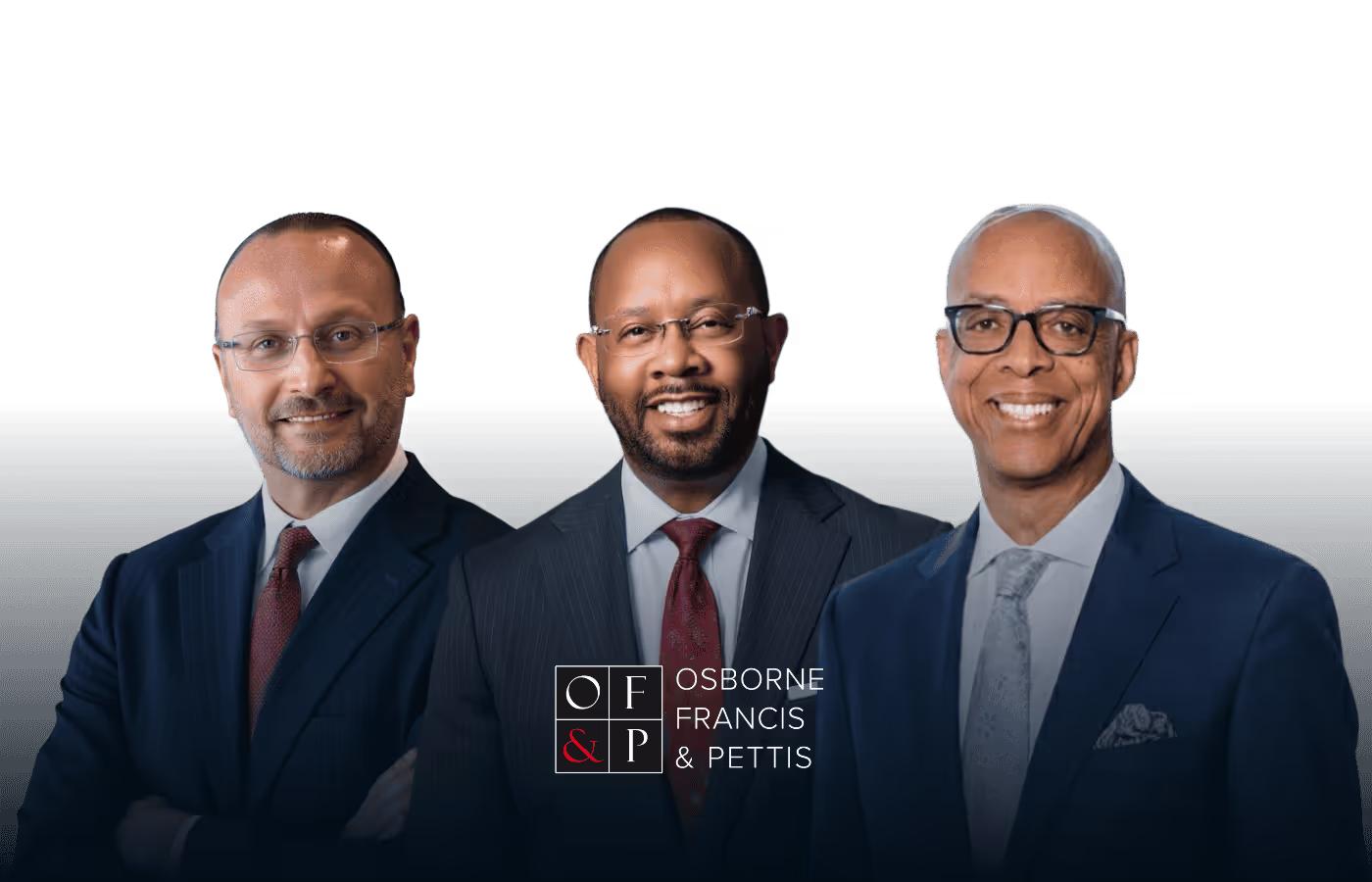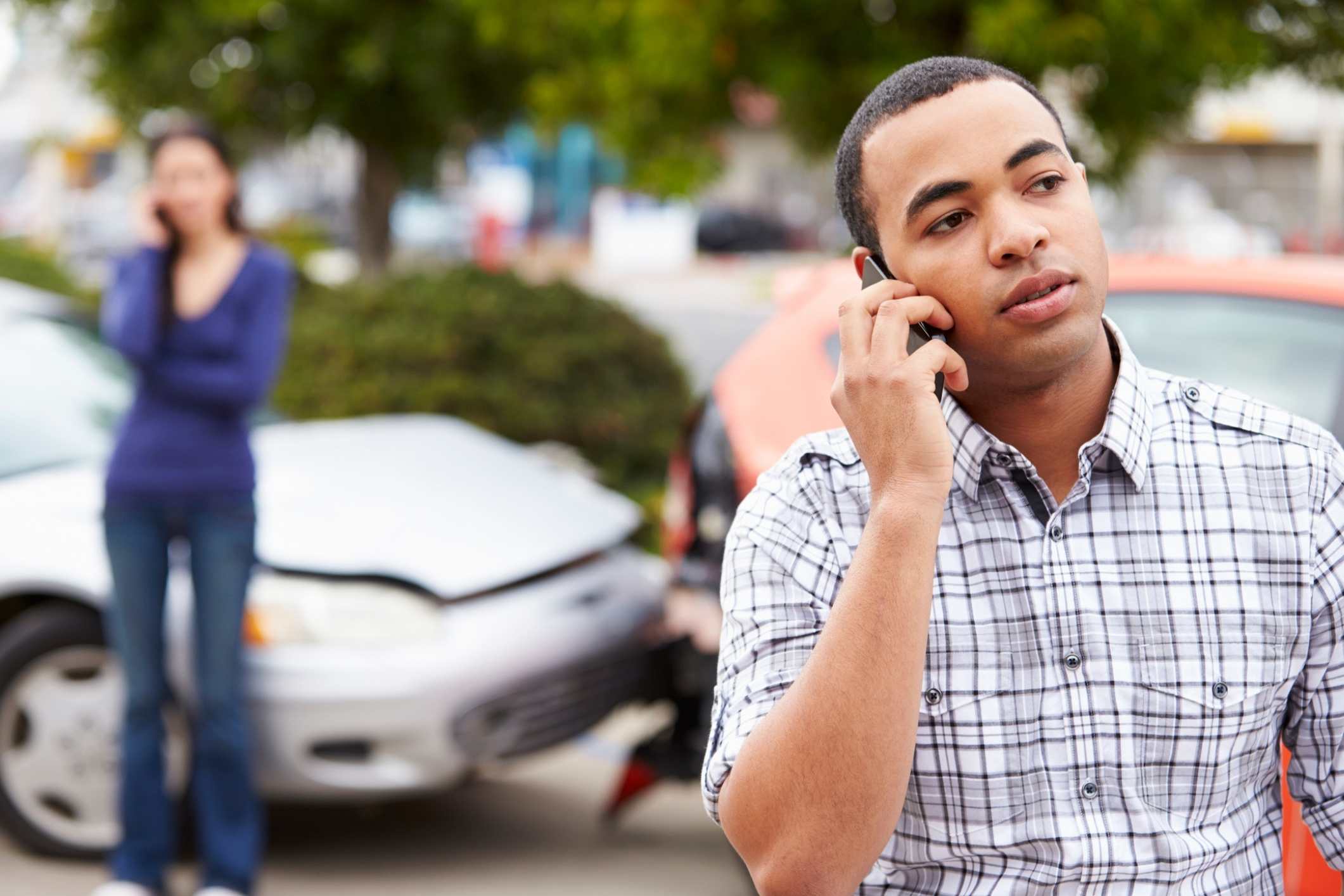Florida had 396,455 motor vehicle crashes in 2022, leading to 3,521 fatalities and 251.919 injuries. Whenever a death occurs in a car accident, it’s tragic, whether the fatality was the at-fault driver or an innocent victim. This kind of tragedy can also make an already complicated case even more complex.
The attorneys with Osborne, Francis, & Pettis have extensive experience dealing with complex cases such as fatal car accidents. If you’ve lost a loved one, we can help you get the justice you deserve. Please call us at 561-293-2600 or contact us online for a free consultation.
If Someone Dies in a Car Accident, the At-Fault Driver May Face Criminal Charges
When a fatal car accident occurs, the driver responsible for causing the accident could potentially face criminal charges, such as vehicular manslaughter or even homicide, depending on the circumstances surrounding the accident. State or local authorities bring these to hold the at-fault driver accountable for their actions that led to the loss of life.
Drunk driving, for instance, occurs far too frequently in Florida. Experts estimate that impaired driving plays a role in about 25% of our state's motor vehicle accident deaths. More than 7,500 people died in impaired driving accidents in Florida from 2009-2018.
When a drunk driver causes an accident that leads to a fatality, state law classifies that offense as a second-degree felony unless the drunk driver was aware there was a death yet failed to render aid. If that’s the case, they’ll face a first-degree felony. The penalties range from 15-30 years or longer in prison.
What Happens if the At-Fault Party Dies?
If the individual responsible for causing the car accident dies, it can complicate the legal process for seeking compensation. Even though the at-fault party won't face criminal charges, avenues for compensation might still be available.
For example, if the at-fault driver had car insurance, their insurance policy may cover some of the damages resulting from the accident. The insurance company would assess the coverage and the extent of liability to determine the compensation that can be provided to the victims or their families.
If you have an insurance policy that includes uninsured or underinsured motorist coverage, you can file a claim with your insurance company. This coverage is designed to protect you if the at-fault driver doesn't have sufficient insurance or is uninsured.
A Wrongful Death Lawsuit May be Filed by the Family of the Victim
When a person dies in a car accident due to another party's negligence or wrongful actions, the victim's family may have grounds to file a wrongful death lawsuit. This legal action seeks to hold the responsible party accountable for their actions and secure compensation for the losses the deceased's family suffered.
Who Can File a Wrongful Death Lawsuit?
In the state of Florida, specific individuals have the legal right to file a wrongful death lawsuit. This typically includes:
- The deceased person's spouse.
- The deceased person's children.
- The deceased person's parents, if the deceased was a minor child.
- Blood relatives who were dependent on the deceased for support or services.
Additionally, the personal representative of the deceased's estate can file the lawsuit on behalf of the estate if none of those above individuals are able or willing to do so.
Determining Who’s Liable for the Car Accident and Resulting Death
Determining liability for a car accident and the resulting death involves a comprehensive investigation. Various pieces of evidence must be collected to establish fault, such as:
- Witness statements: Statements from individuals who witnessed the accident can provide valuable insights into how the collision occurred.
- Accident reconstruction: Experts may recreate the accident scene to determine the sequence of events and how the collision happened. They can also explain complicated topics in a way that juries can understand. There are many other kinds of expert witnesses as well. These include medical experts, financial experts and others. You’ll want to hire an attorney with relationships with expert witnesses because they can strengthen your case.
- Police reports: Official police reports provide an account of the accident, including any citations issued and preliminary findings. The police report is one of the most critical pieces of evidence available.
- Physical evidence: Damage to vehicles, skid marks, and other physical evidence can help reconstruct the accident. It would be best if you spoke with an attorney immediately so they can investigate the accident before these and other pieces of physical evidence disappear.
Damages You Can Recover for Your Loved One’s Death
In a wrongful death lawsuit, the family of the deceased can seek various types of damages:
- Economic damages: These include quantifiable financial losses such as medical expenses related to the accident, funeral and burial costs, and the value of the financial support the deceased would have provided.
- Non-economic damages: While economic damages are tangible, non-economic damages are harder to quantify. These include the pain and suffering the deceased endured, loss of companionship, emotional distress, and the impact of the loss on the family's emotional well-being.
- Punitive damages: In some cases, the at-fault party's behavior was exceptionally reckless, intentional, or malicious. If this applies to your case, the court might award punitive damages. These are meant to punish the wrongdoer and discourage similar behavior in the future. However, it’s important to note that juries rarely award punitive damages.
Hiring a Wrongful Death Attorney is Crucial for the Health of Your Case
Navigating the legal complexities of a wrongful death lawsuit can be overwhelming during an already emotionally challenging time. Hiring an experienced wrongful death attorney is crucial to ensure your rights are protected, evidence is properly gathered, and you receive the compensation you have coming. An attorney can negotiate with insurance companies, build a strong case, and represent your interests in court if necessary.
Please don’t hesitate to contact Osborne, Francis, & Pettis so we can help you obtain the maximum compensation you deserve. You can use our online form or call 561-293-2600 for a free evaluation of your case.

.avif)












.avif)


.svg)



